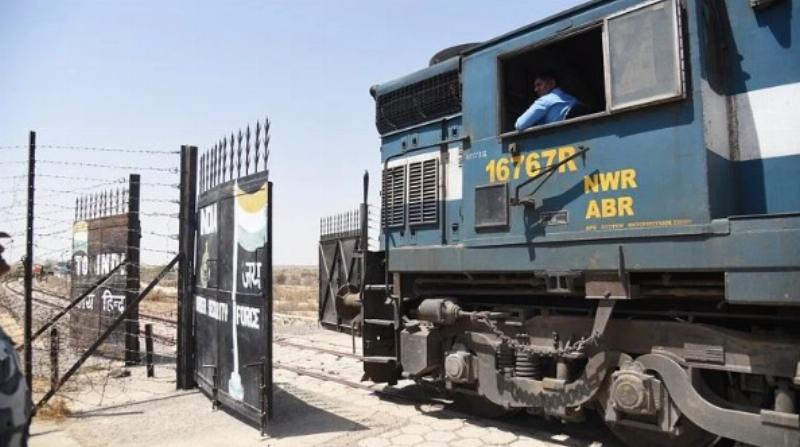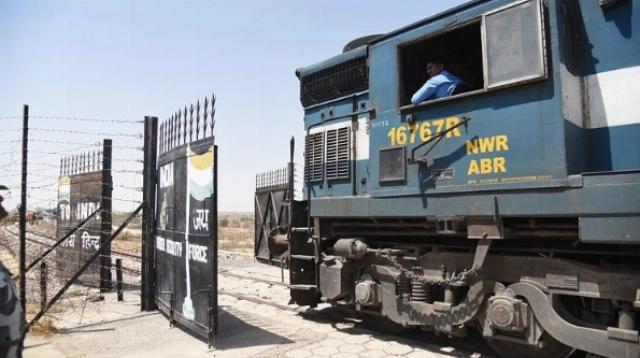


For a brief while, it appeared as if India and Pakistan, two nuclear-armed nations, were trembling on the brink of a hot war. However, Secretary of State Marco Rubio has announced that the two countries have reached a ceasefire. This is excellent news, although I suspect that it had as much to do with neither country seeking nuclear annihilation as it does with America’s negotiating prowess. This doesn’t mean the same result can be reached with Iran, because Iran is different.
The showdown between India and Pakistan was triggered when Muslim militants from Pakistan entered India and slaughtered 25 Hindu tourists. These kinds of depredations have been going on for decades—well, actually, hundreds of years, for Muslim conquerors in India did what Muslims always do and slaughtered Hindus in the millions (how many millions is still debated). In that ancient land, those religious rivalries don’t magically disappear, even if you divide the country, sending the Muslims north and the Hindus south.

A border crossing between India and Pakistan by Raviraj96. CC BY-SA 4.0.
India responded to this mass murder by firing on terrorist strongholds along the Pakistan/India border. And, of course, Pakistan had to defend its sovereignty by vowing vengeance against India. In this “he hit me back first” kind of discourse, Pakistan’s reasoning is that, because the Pakistan government didn’t commit the massacre, India had no right to attack Pakistan’s sovereignty, making India the aggressor. India, however, by pointing out that Pakistan allows militants to function within their borders (think about where Osama bin Laden met his end), made it the aggressor.
What made this more than a regional dispute is the fact that both countries are armed with nuclear weapons. An all-out war between the two could quickly result in hundreds of millions of deaths and a nuclear hot zone radiating out for thousands of square miles. Nobody wanted that, least of all the two combatant nations engaged in a seeming game of chicken headed toward a nuclear cliff.
It was into this standoff, with both parties aiming for the edge but neither wanting to get there, that the U.S. stepped in and scored a very quickly achieved ceasefire:
Over the past 48 hours, @VP Vance and I have engaged with senior Indian and Pakistani officials, including Prime Ministers Narendra Modi and Shehbaz Sharif, External Affairs Minister Subrahmanyam Jaishankar, Chief of Army Staff Asim Munir, and National Security Advisors Ajit…
— Secretary Marco Rubio (@SecRubio) May 10, 2025
Over the past 48 hours, @VP Vance and I have engaged with senior Indian and Pakistani officials, including Prime Ministers Narendra Modi and Shehbaz Sharif, External Affairs Minister Subrahmanyam Jaishankar, Chief of Army Staff Asim Munir, and National Security Advisors Ajit Doval and Asim Malik.
I am pleased to announce the Governments of India and Pakistan have agreed to an immediate ceasefire and to start talks on a broad set of issues at a neutral site.
We commend Prime Ministers Modi and Sharif on their wisdom, prudence, and statesmanship in choosing the path of peace.
Pakistan has already started normalizing its airspace following this announcement:
????????????BREAKING: PAKISTAN REOPENS AIRSPACE AFTER CEASEFIRE DEAL WITH INDIA
— Mario Nawfal (@MarioNawfal) May 10, 2025
Pakistan has fully reopened its airspace for all flights following a U.S.-mediated ceasefire agreement with India.
Both countries confirmed the truce on Saturday.
Trump praised the move, calling it an act… https://t.co/899Qqq5PGX pic.twitter.com/kf9uYYMiI4
So, great news. But do not expect the same from Trump’s negotiations with Iran. That’s because the Iranian Shia religion has a very unique take on the coming apocalypse.
Here in America, a subset of Christians believe that the Apocalypse is coming courtesy of God, not man. They hope to be taken up in the Rapture, but, just in case they’re not, they prepare for the world after the Rapture, a world that won’t be pretty.
The Shia version of Islam in Iran is also an apocalyptic religion. Iran’s leaders believe that the End of Days will be triggered by the return of the 12th (hidden) Imam, which will introduce an era of endless peace and harmony.
Where this Iranian version differs from that “end of days” concept in other religions is that Iran believes that its role is not simply to be a passive, albeit faithful, observer of the coming end. It thinks it can help out by triggering the apocalypse. And of course, Iranian religious fervor is imbued with the Ayatollah Khomeini’s focus on martyrdom as an instant pathway to Paradise. As past-President Mahmoud Ahmadinejad constantly made clear with his speeches, Iran was totally copacetic with the risk of all-out nuclear war.
I’m thrilled that calmer heads prevailed in the Pakistan-India conflict. I’m less sanguine that the same will happen when it comes to Iran.
